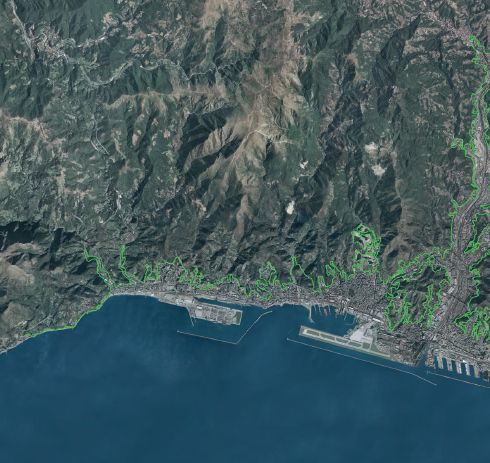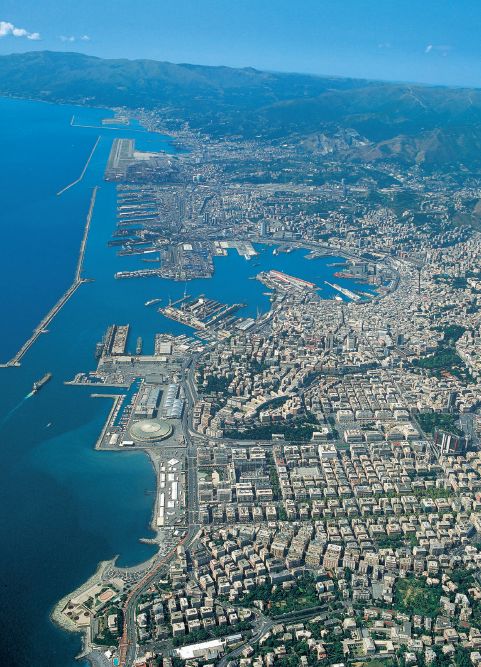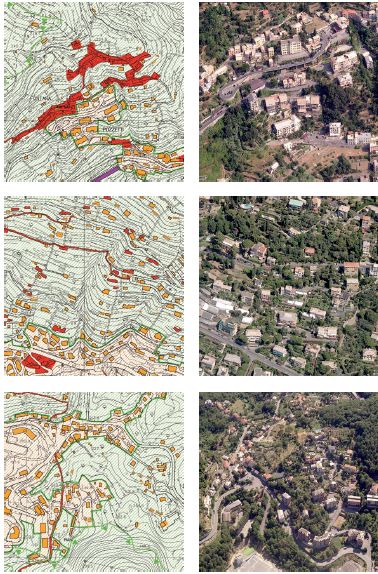
 The city of Genoa, Italy, established the Urban Lab in 2007 to create a sustainable development plan for the Mediterranean port city. Designed by 1998 Pritzker Architecture Prize Laureate Renzo Piano, the lab convenes a monthly roundtable called the Table of Ideas to tap the expertise of top design and urban planning professionals from around the world. These collaborative sessions have yielded new urban planning guidelines for large-scale infrastructure projects, urban development, and small-scale revitalization projects.
The city of Genoa, Italy, established the Urban Lab in 2007 to create a sustainable development plan for the Mediterranean port city. Designed by 1998 Pritzker Architecture Prize Laureate Renzo Piano, the lab convenes a monthly roundtable called the Table of Ideas to tap the expertise of top design and urban planning professionals from around the world. These collaborative sessions have yielded new urban planning guidelines for large-scale infrastructure projects, urban development, and small-scale revitalization projects.
Each meeting of the roundtable has a theme for discussion and development of planning policies and strategic objectives. Expert contributors represent the fields of architecture, environment, cultural and historical heritage, mobility and transport, social issues, economics and law. The themes explored during these session are further developed by the Urban Lab project team, which is comprised of Genoa’s experienced mapping department professionals, as well as young architects and engineers from leading universities.  The inaugural meeting of the Table of Ideas on Sept. 28, 2007, set the principles of sustainable growth for the city.
The inaugural meeting of the Table of Ideas on Sept. 28, 2007, set the principles of sustainable growth for the city.
Once refined, these principles were adopted by the Genoa City Council in 2009 and became the foundation for the urban planning guidelines.
A unifying objective of the guidelines is to change the urban fabric of the built area bounded by two virtual lines: the green line delineating the city’s green territory, and the blue line delineating the sea-side operations.
Uniting the territory between these boundaries will transform Genoa into an integrated, compact and sustainable city.
Commenting on this strategic initiative, Genoa Mayor Marta Vincenzi said, “In establishing the Genoa Urban Lab we have gathered some of the top design and urban planning minds from around the world.
Their keen insight and vision, coupled with the advanced capabilities of Bentley’s solutions for the lifecycle of infrastructure, will enable us to create an innovative and effective plan that respects the city’s different environments by establishing firm boundaries between built areas, green areas, and blue or seaside areas.
Quality growth will replace quantity growth, and our design philosophy will be to ‘build on built’ rather than to encroach further on our precious natural environments.”
The city selected Bentley as the exclusive technology sponsor of the Urban Lab, which now uses MicroStation, Bentley Map, Descartes, Bentley Architecture, GenerativeComponents, Bentley Structural, and GEOPAK software.
 The company also provides training through Bentley LEARN, which gives the Urban Lab unlimited access to OnDemand eLearning from the Bentley Institute.
The company also provides training through Bentley LEARN, which gives the Urban Lab unlimited access to OnDemand eLearning from the Bentley Institute.
“The benefits from working on MicroStation software are mainly the possibility of interoperability and integration, which allows complete and fully integrated teamwork,” said Urban Lab Director Anna Corsi.
The Urban Lab is making progress on major guidelines for the Genoa Municipality Territory Management Plan.
Following these guidelines, various land analysis and development plans are being investigated. In addition, the lab is carrying out feasibility studies for strategic projects linked to the city’s long-term transformation, as well as short-term intervention projects to revitalize blighted areas.
Through these projects, the city will recover urban spaces, rediscover green spaces, and recreate the city’s relationship with the sea.
One goal is to build on built-up areas rather than expand into previously undeveloped areas.
This approach favors accessible areas with existing services, and the conversion of under- or unutilized buildings.
The lab calls this growth through the recovery of urban fabric, which is one of the many innovative ideas that has come out of the unique planning framework.
Public transportation is also favored as a sustainable way to improve urban mobility.
Genoa is pursuing an efficient public transport systems through selected investment, limiting the creating of new roads and parking areas, and promoting park-and-ride facilities that connect to the existing transportation infrastructure. Eco-compatible alternative transportation means are also being investigated, such as rail and sea.
The Urban Lab’s sustainable development plan started with an idea that defined the identity of the city of Genoa.
Through the inspired Table of Ideas, the lab’s multidisciplinary project team has benefited from the best and brightest minds working to redefine how projects are developed around the city. Not surprisingly, the lab’s creative environment has also brought new meaning to the phrase “floating out ideas.”―the lab is located on the 28-meter-long Studio Ship created for the project and docked at Port Antico.
————————————————-
Cathy Chatfield-Taylor is a freelance writer/editor for the infrastructure engineering and construction industry and a frequent contributor to Be Current magazine, a Bentley publication. She is a member of the International Association of Business Communicators. Contact her at [email protected].